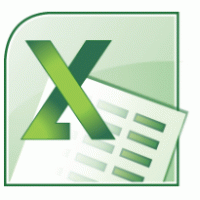 Back to jkp-ads.com |
Ron de Bruin
|
|
 Back to jkp-ads.com |
Ron de Bruin
|
|
Ron de Bruin decided to remove all Windows Excel content from his website for personal reasons. If you want to know why, head over to rondebruin.nl.
Luckily, Ron was kind enough to allow me to publish all of his Excel content here.
Most of these pages are slightly outdated and may contain links that don 't work. Please inform me if you find such an error and I'll try to fix it.
Kind regards
Jan Karel Pieterse
Important read this :
The code on this page is only working when you use Outlook as your mail
program.
Copy the code in a Standard module of your workbook, if you just
started with VBA see this page.
Where do I paste
the code that I find on the internet
Check out this Tip page for changing the code on this page.
Tips for changing the code examples
Make a list in Sheets("Sheet1") with :
In column A
: Names of the people
In column B : E-mail addresses
In column C:Z : Filenames like this C:\Data\Book2.xls
(don't have to be Excel files)
The Macro will loop through each row
in "Sheet1" and if there is a E-mail address in column B
and file name(s)
in column C:Z it will create a mail with this information and send it.
Sub Send_Files() 'Working in Excel 2000-2016 'For Tips see: https://jkp-ads.com/rdb/win/winmail/Outlook/tips.htm Dim OutApp As Object Dim OutMail As Object Dim sh As Worksheet Dim cell As Range Dim FileCell As Range Dim rng As Range With Application .EnableEvents = False .ScreenUpdating = False End With Set sh = Sheets("Sheet1") Set OutApp = CreateObject("Outlook.Application") For Each cell In sh.Columns("B").Cells.SpecialCells(xlCellTypeConstants) 'Enter the path/file names in the C:Z column in each row Set rng = sh.Cells(cell.Row, 1).Range("C1:Z1") If cell.Value Like "?*@?*.?*" And _ Application.WorksheetFunction.CountA(rng) > 0 Then Set OutMail = OutApp.CreateItem(0) With OutMail .to = cell.Value .Subject = "Testfile" .Body = "Hi " & cell.Offset(0, -1).Value For Each FileCell In rng.SpecialCells(xlCellTypeConstants) If Trim(FileCell) <> "" Then If Dir(FileCell.Value) <> "" Then .Attachments.Add FileCell.Value End If End If Next FileCell .Send 'Or use .Display End With Set OutMail = Nothing End If Next cell Set OutApp = Nothing With Application .EnableEvents = True .ScreenUpdating = True End With End Sub
If you want to use the Intellisense help showing you the properties and
methods of the objects as you
type you can use Early Binding.
Bit faster also when you run your code but you can have problems when you
distribute your workbooks. Excel will automatic update the reference number
to Outlook when you open your workbook in a higher version of Excel/Outlook
but not update it when you open it in a lower version of Excel/Outlook. With
Late Binding as I used in the macro examples you not have
this problem.
Add a reference to the Microsoft Outlook Library in
Excel
1) Go to the VBA editor with the shortcut
Alt - F11
2) Click on
Tools>References in the Menu bar
3) Place a
Checkmark before Microsoft Outlook ? Object Library
Where ? is the Outlook version number
Then replace
this three lines in the code
Dim OutApp As
Object
Dim OutMail As Object
Set OutMail = OutApp.CreateItem(0)
With this three lines
Dim OutApp As
Outlook.Application
Dim OutMail As Outlook.MailItem
Set OutMail =
OutApp.CreateItem(olMailItem)